A helicopter is a type of rotorcraft in which lift and thrust are supplied by horizontally spinning rotors. This allows the helicopter to take off and land vertically, to hover, and to fly forward, backward and laterally. These attributes allow helicopters to be used in congested or isolated areas where fixed-wing aircraft and many forms of short take-off and landing (STOL) or short take-off and vertical landing (STOVL) aircraft cannot perform without a runway.
In 1942, the Sikorsky R-4 became the first helicopter to reach full-scale production.
Although most earlier designs used more than one main rotor, the configuration of a single main rotor accompanied by a vertical anti-torque tail rotor (i.e. unicopter, not to be confused with the single-blade monocopter) has become the most common helicopter configuration. However, twin-main rotor helicopters (bicopters), in either tandem or transverse rotors configurations, are sometimes in use due to their greater payload capacity than the monorotor design, and coaxial-rotor, tiltrotor, and compound helicopters are also all flying today. Quadrotor helicopters (quadcopters) were pioneered as early as 1907 in France, and along with other types of multicopters, have been developed mainly for specialized applications such as drones.
Etymology
The English word helicopter is adapted from the French word hélicoptère, coined by Gustave Ponton d'Amécourt in 1861, which originates from the Greek helix (ἕλιξ) "helix, spiral, whirl, convolution" and pteron (πτερόν) "wing". For various reasons, the word is often erroneously, from an etymological point of view, analysed by English speakers into heli- and copter, leading to words like helipad and quadcopter. English language nicknames for "helicopter" include "chopper", "copter", "heli", and "whirlybird". In the United States military, the common slang is "helo" pronounced with a long "e".
Design characteristics
A helicopter is a type of rotorcraft in which lift and thrust are supplied by one or more horizontally-spinning rotors. By contrast the autogyro (or gyroplane) and gyrodyne have a free-spinning rotor for all or part of the flight envelope, relying on a separate thrust system to propel the craft forwards, so that the airflow sets the rotor spinning to provide lift. The compound helicopter also has a separate thrust system, but continues to supply power to the rotor throughout normal flight.
Rotor system
The rotor system, or more simply rotor, is the rotating part of a helicopter that generates lift. A rotor system may be mounted horizontally, as main rotors are, providing lift vertically, or it may be mounted vertically, such as a tail rotor, to provide horizontal thrust to counteract torque from the main rotors. The rotor consists of a mast, hub and rotor blades.
The mast is a cylindrical metal shaft that extends upwards from the transmission. At the top of the mast is the attachment point for the rotor blades called the hub. Main rotor systems are classified according to how the rotor blades are attached and move relative to the hub. There are three basic types: hingeless, fully articulated, and teetering; although some modern rotor systems use a combination of these.
If you want to read a whole lot more, go here: https://en.wikipedia.org/wiki/Helicopter
Country-Style Potato Tot Casserole
- 1 (10-3/4-ounce) can cream of chicken soup
- 1 cup sour cream
- 1/2 teaspoon poultry seasoning
- 1/2 teaspoon salt
- 1/4 teaspoon black pepper
- 3 cooked chicken breasts, cut into 1/2-inch chunks
- 1 1/2 cups frozen mixed vegetables
- 1/2 (32-ounce) package frozen potato tots
- 1 cup shredded Cheddar cheese
- Preheat oven to 375º. Coat a 9- x 13-inch baking dish with cooking spray.
- In a large bowl, combine soup, sour cream, poultry seasoning, salt, and pepper; mix well. Stir in chicken and mixed vegetables.
- Spread mixture evenly in baking dish. Place potato tots on top.
- Bake 35 minutes, then top with cheese and bake 5 additional minutes, or until cheese is melted.
1959 – Magic Johnson, American basketball player
1969 – Tracy Caldwell, American astronaut



.jpg)

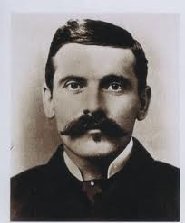
![https://blogger.googleusercontent.com/img/b/R29vZ2xl/AVvXsEinfAG8ae7BBRU1d3XpOthdwY5JlSSp68prcPMT1GRySC5fL7b_9k78xC-2koetkmFJZVUG9rUN3zy7jnRauJZGF-fgsJ15arGGY_OAwKKyp8a3NXvlWYcaRv4O4nHMDR3AEfGqOl_s_zgV/s1600/amd_aliceghostley[1]MA29051426-0029.jpg https://blogger.googleusercontent.com/img/b/R29vZ2xl/AVvXsEinfAG8ae7BBRU1d3XpOthdwY5JlSSp68prcPMT1GRySC5fL7b_9k78xC-2koetkmFJZVUG9rUN3zy7jnRauJZGF-fgsJ15arGGY_OAwKKyp8a3NXvlWYcaRv4O4nHMDR3AEfGqOl_s_zgV/s1600/amd_aliceghostley[1]MA29051426-0029.jpg](https://ecp.yusercontent.com/mail?url=https%3A%2F%2F1.bp.blogspot.com%2F-FbLsfCvGNHo%2FUCp2WWPUsSI%2FAAAAAAAAa2g%2Fw9P7GIEX35A%2Fs1600%2Famd_aliceghostley%255B1%255DMA29051426-0029.jpg&t=1691945286&ymreqid=c419e3ce-461a-657f-2c2d-f803aa010000&sig=pmDrIVKPlVXYPYWDBOfTig--~D)

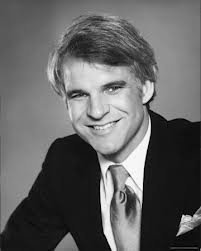
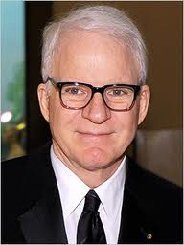


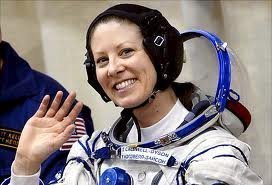
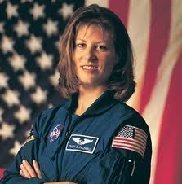



No comments:
Post a Comment